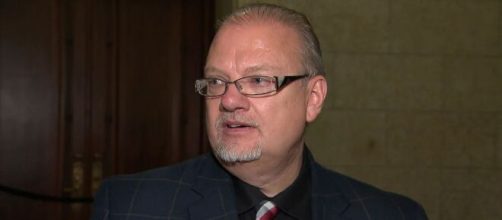Canadians have been preparing for an unexpected federal election, slated for September 20. It's a snap election and it comes two years before the previously anticipated election date.
Whether or not Canada ends up with a different prime minister remains yet to be seen. But for one of the country's provinces in Manitoba, they have its own flux of government leadership.
Pallister out, Goertzen in - for now
Manitoba Premier Brian Pallister has resigned from office. Both as Manitoba premier and as leader of the Progressive Conservative Party of Manitoba.
Pallister had announced his intention to retire a few weeks prior. He'd been the province's premier since 2016. It came after he led the Progressive Conservative Party to a landslide victory in that year's election. Under Pallister, the Progressive Conservatives also emerged successful in the 2019 provincial election.
Pallister's Deputy Premier Kelvin Goertzen was elected to succeed him as party leader on a temporary basis. This also makes him, for the time being, the new premier. Goertzen had only just become the deputy premier earlier this year. He also assumed the newly-created Cabinet position of minister of intergovernmental affairs and internal relations. He named Rochelle Squires as the new deputy premier.
Goertzen was first elected to the Legislative Assembly of Manitoba in 2003. While the party was in opposition, he took on a number of prominent roles. After the Progressive Conservatives came to power in the province, he became a Cabinet member. At first, as minister of health, seniors and active living. Goertzen's second post was as minister of education.
His experience as education minister may be receiving even more attention now. Global News reports that as premier Goertzen plans to remove the controversial Bill 64 from the agenda. The bill would have overhauled the education system of Manitoba. Including removing much of the power from local authorities, centralizing much of it at the provincial level.
Goertzen has said that he won't seek the roles of premier or party leader on a full-time basis. A mail-in vote is being held regarding the new Progressive Conservative leader, who'd also become the new premier. The CBC indicates that Heather Stefanson has emerged as a favorite. Stefanson had preceded Kelvin Goertzen as the deputy premier. More recently, she'd held one of Goertzen's former Cabinet roles, now called the minister of health and seniors care.
Pallister is a former federal legislator
Brian Pallister was first elected to the Legislative Assembly of Manitoba in a 1992 by-election. He represented the electoral district of Portage la Prairie, near Winnipeg. Pallister was re-elected in 1995.
Afterward, he was appointed to the Cabinet by Premier Gary Filmon as minister of government services.
He resigned from the Assembly in 1997 to run for a seat in the Canadian Parliament. That year, he lost to incumbent Jake Hoeppner of the Reform Party. After making some other waves on a national level with the Progressive Conservative Party, he left it. Instead joining the Canadian Alliance, successor to the Reform Party.
With his new affiliation, Pallister ran for the Parliament seat he'd sought in 1997, this time winning it. Jake Hoeppner also ran again, but finished in fourth place as an Independent. Three years later, the Canadian Alliance and the national Progressive Conservatives agreed to become the Conservative Party of Canada.
Which would be Pallister's new party affiliation on a national level.
He was re-elected in 2004 and 2006. While a member of the opposition, he was appointed as the official critic for National Revenue. After his side won power, Pallister became parliamentary secretary to the ministers of international trade and for international cooperation. He didn't run for re-election in 2008.
In 2012, Manitoba Progressive Conservative Leader and Opposition Leader Hugh McFayden resigned. Pallister would become the new holder of both offices. Later that year, he won a by-election McFayden's seat in the Legislative Assembly of Manitoba. The electoral district is Fort Whyte, based in southern Winnipeg.


